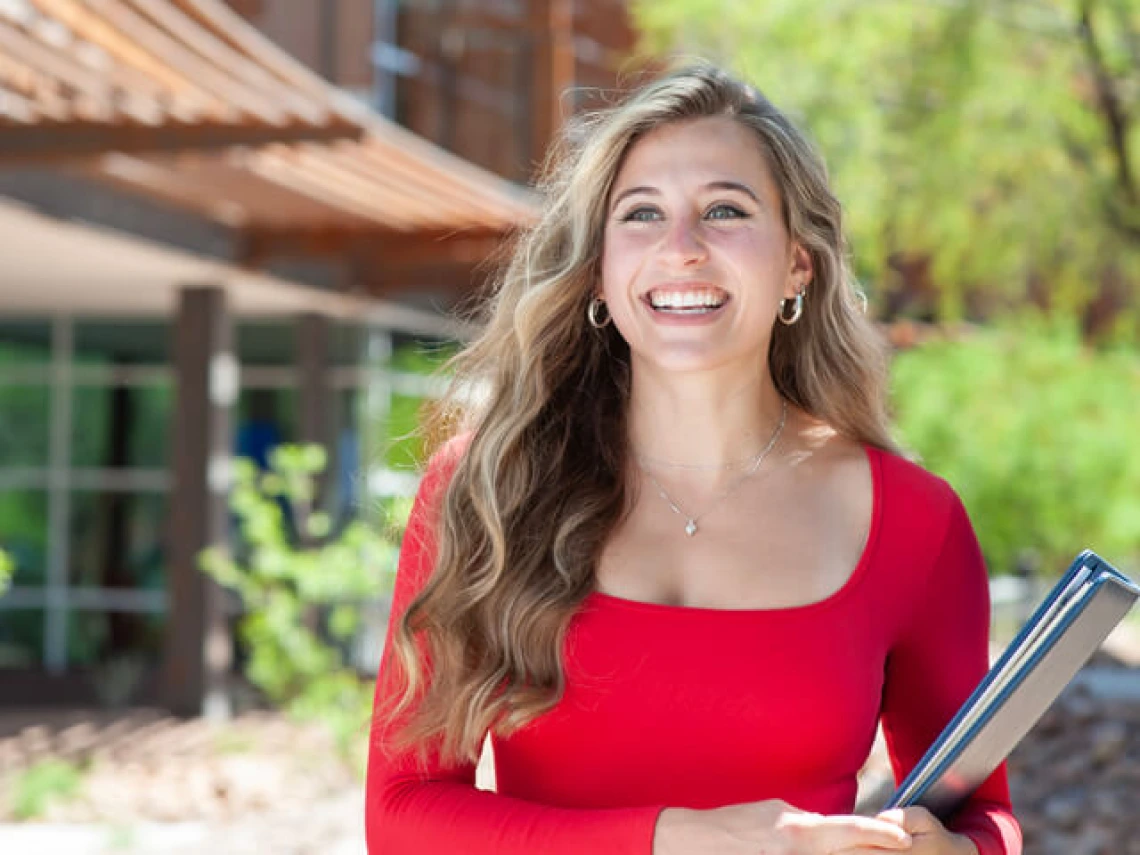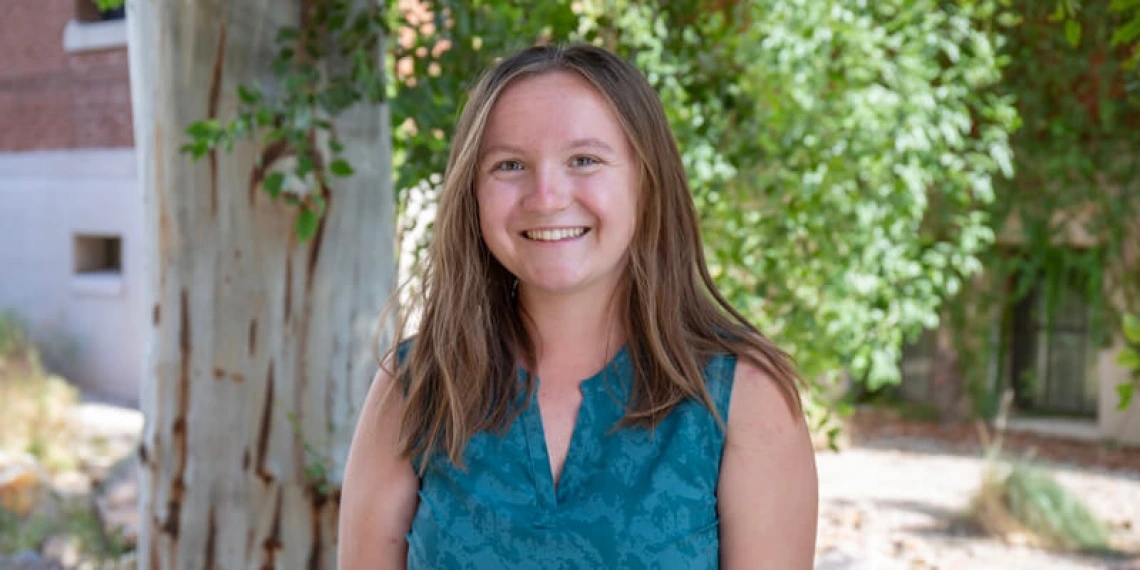Humanities Foundations for Health Careers

Numerous alumni over the years have chosen humanities majors as part of the educational foundation for their health-related careers, but new options within the College of Humanities are even more directly aligned with those career pathways.
The B.A. in Applied Humanities, introduced in 2018, provides a transdisciplinary education that integrates professional training with the broad intercultural skills of the humanities. The degree’s emphasis areas in Public Health and Medicine both focus on addressing the world’s health challenges and inequities. The Applied Humanities internship program offers students real-world experience to complement their coursework.
In 2023, the College launched its first B.S. degree, in Religious Studies for Health Professionals. The major provides an interdisciplinary focus on how diverse religious beliefs and practices have shaped understandings and experiences of health, illness, healing and dying.
For Jayne Reines, majoring in Applied Humanities with an emphasis in Public Health was appealing because she didn’t have to wall herself off by taking only STEM classes. The combination of courses, along with a pre-med thematic minor, prepared the 2023 graduate well for acceptance into the College of Medicine – Tucson.
“I enjoyed getting those two things at the same time because I was able to learn how you can apply humanities skills in an interdisciplinary way,” said Reines, now in her second year as a medical student. “There’s a tendency with people who go into medicine or healthcare to think of it as strictly science, when in reality medicine is the art of treating humans and working with different people.”
Kharen Morgan also found that the humanities gave her the best start in training to be an epidemiologist, like her sister. Morgan graduated in 2021 with a double major in Applied Humanities with a Public Health emphasis and East Asian Studies, Chinese Language Emphasis. After graduation, she worked for two years at the CDC Foundation as an HIV/STD case investigator before enrolling in a graduate program at the Mel and Enid Zuckerman College of Public Health.
“I decided it would be the best route for me to take for getting involved in public health. You’re working with the community, so going through the humanities route made me more connected to people,” she said. “Studying humanities, you get to understand a community’s culture and traditions, which helps assess what their needs and wants are. Trying to prevent and treat disease really requires that.”
One of the first students to graduate with the Religious Studies for Health Professionals degree, Bryce Johansen finished in May, with a double major in Biology. The courses in anatomy, physiology and biology felt incomplete to Johansen as she followed the typical pre-med route.
“When I was just a science major, I felt a little bit of a disconnect with what I was learning. And then when I started studying the humanities, it was like the world opened up. My religious studies classes took it to another level of actually getting to know people. It was such an eye-opening and humbling experience,” she said. “There’s an emotional and cultural aspect to healing. When health professionals know more about different people’s cultures, it helps them connect with patients better and get on the same page for the best way to treat them.”

Alex Keen, a senior studying Religious Studies for Health Professionals and Neuroscience and Cognitive Science, said a general-education course in Buddhist Studies started her thinking more about the connections between neuroscience and spirituality. That led to more courses on Buddhism and a declaring a double major soon after. Learning new perspectives through Religious Studies, Keen said she’s working to rewire her thinking and develop what she calls her “humanities brain.”
“It’s the balance between humanities and science that’s important to me. They’re both going toward the same goal of improving the quality of life, but from different sides, and the overlap is so important,” said Keen, who’s applying to graduate schools to pursue a career as a therapist. “My goals are to be aware and cognizant of how the two different domains function and how they can benefit each other.”

